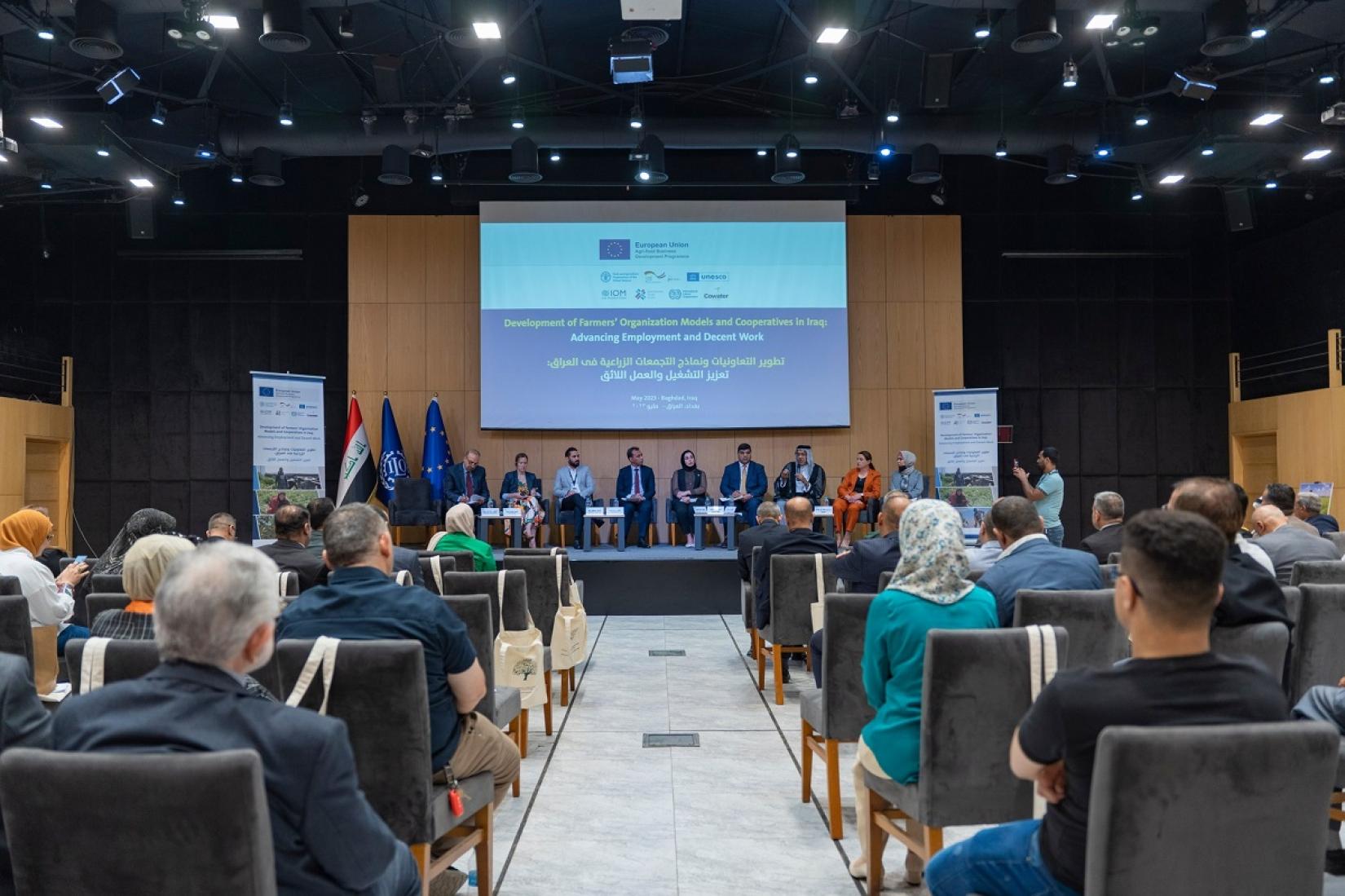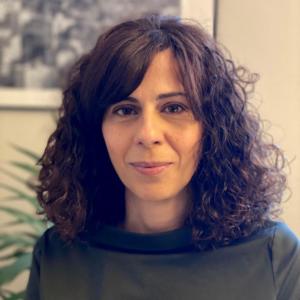Stakeholders from across the spectrum shed light on farmer organization models and cooperatives in Iraq and their role in supporting the development of the agricultural sector
29 May 2023

The event brought together partners implementing programmes under the European Union Agri-food Business Development Programme, and national stakeholders involved in the development of the agricultural sector.
Baghdad, Iraq – 29 May 2023 - An event was held by partners implementing the European Union Agri-food Business Development Programme (AfBDP) in Baghdad on Monday (May 29) to discuss the development of farmers’ organizations and cooperatives in Iraq and ways to strengthen their role so they can better respond to the needs of society, particularly the most vulnerable.
The event marks the first in a series of events under the AfBDP, to showcase and discuss relevant topics under the boarder Agri-food Business Development Programme, which seeks to strengthen governance and promote sustainable job creation in Iraq’s agri-foodsector through activities that address the entire food value chain.
Social and solidarity economy entities such as cooperatives and farmers' organizations can play a crucial role in supporting the development of these value chains by facilitating coordination among farmers, improving access to markets and finance, and advocating for more conducive policy and regulatory reforms.
“This event today is an opportunity, the first of its kind that brings together stakeholders from the various sectors of the government, the private sector and organizations, to come up with recommendations that will help regulate or organize cooperative work with a new concept…I invite all organizations to provide their support so that we can modernize the concept of cooperative work in Iraq,” said MithaqAbdul-Hussein, the Undersecretary of the Ministry of Agriculture.
The first event was attended by relevant entities, including representatives from the Council of Ministers, the Ministries of Labour and Social Affairs, Agriculture, Planning, Education and Higher Education, as well as workers’ and employers’ organizations, farmers’ associations, civil society organizations, parliament, representatives from banks in Iraq, universities and research institutes. It also included other stakeholders involved in the development of the agricultural sector.
It also brought together EU’s AfBDP members which include the International Labour Organization (ILO), the Food and Agriculture Organization (FAO), Deutsche Gesellschaft fur Internationale Zusammenarbeit (GIZ), the International Organization for Migration (IOM), the International Trade Centre (ITC), the United Nations Educational, Scientific and Cultural Organization (UNESCO), and COWATER.
Participants took stock of the current situation of agricultural cooperatives and farmers groups in Iraq, some of the challenges and opportunities with the different models for business clusters in agriculture and how they can be supported to grow into sustainable entities, including through the creation of a conducive policy environment for cooperative development and promotion of farmers groups in Iraq.
Partners under the AfBDP highlighted some of the work they are undertaking to support cooperatives and farmers’ organization models, in terms of implementing certain models of farmer organizations, supporting cooperatives to advance employment and decent work, financing climate adaptation, among others.
“The EU has been a long standing partner of Iraq in supporting the agricultural sector as a way to diversify the economy and promote jobs creation. Agricultural cooperatives can and should play an important role in supporting farmers and this model is successful working in many areas of the world both in the developed and developing world. Today’s discussion was important to understand the challenges faced by agricultural cooperatives in Iraq, and to discuss how to make them more effective in targeting the needs of the farmers,” said Ville Varjola, Ambassador of the European Union to Iraq.
“Cooperatives should be seen as important partners in socio-economic development. Their democratic nature, collective ownership and focus on self-help create a unique means of empowerment. At a time when the world of work is experiencing unprecedented changes, we look forward to continuing to grow our partnerships in this field, in order to support sustainable development and a more just, inclusive and safe future of work with decent work for all,” added Maha Kattaa, ILO Country Coordinator in Iraq.
Since 2021 the European Union has funded several international partners in Iraq - ILO, FAO, IOM, UNESCO, ITC, GIZ and COWATER - to collaborate under a large Agri-food Business Development Programme that uses a programmatic approach by leveraging each agency’s strengths to address different weaknesses in the private sector and agri-food sector in a coordinated fashion. Central to many of the projects in the AfBDP is an agri-food value chain approach that supports stabilization and governance, and promotes sustainable job creation.


